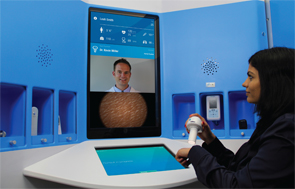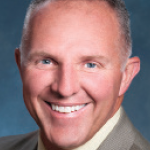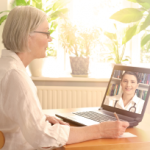
HealthSpot stations are equipped with interactive medical devices and touchscreen computers that connect patients with a medical provider.
Image Credit: HealthSpot
Technology is taking medicine and the Cleveland Clinic and Mayo Clinic to unexpected places. The famed institutions are testing a new way to deliver medical care, with walk-in kiosks mobilized to reach patients who may be too far away, too short on time or facing other challenges that keep them from a traditional doctor’s office visit.
Customers and employees at two pharmacies in Cleveland can walk into a high-tech kiosk to access Cleveland Clinic services through private online, high-definition videoconferences with clinic staff. The kiosks, called HealthSpot stations, are equipped with interactive medical devices and touchscreen computers that connect patients with a medical provider.
Constructed with four walls to enhance privacy, these kiosks are one way the Cleveland Clinic aims to meet patient needs in everyday settings, Cleveland Clinic’s Brian Donley, MD, said in a release. The setup allows for extended hours of operation and flexibility for patients who don’t want to, or can’t, wait until a doctor’s office has an available appointment.
This particular pilot program gives patients the option to walk up to the station without an appointment and receive treatment for minor and common health conditions. Marc’s Pharmacy is the first retailer in Ohio to offer this telehealth platform that, combined with cloud-based software, delivers healthcare in a new-tech way that one day could be expanded to encompass rheumatology and other specialty medicine.
The medical kiosk approach also is being tested in the workplace to enhance employee healthcare options. A handful of health insurance companies currently cover telehealth sessions like a regular office visit.
HealthSpot has placed 20 of its stations in four states so far—California, Florida, Minnesota and Ohio—says Lisa Maugham, HealthSpot’s vice president of marketing. It also partners with other major health systems, including Kaiser Permanente, Miami Children’s Hospital, MetroHealth, Florida Blue and John Carroll University in Ohio.
The Need
The development of walk-in kiosks for patient visits, also dubbed doc pods, reflects the escalating pace of telemedicine in a world where technology has its hands in almost every industry. But can the concept adapt to the field of rheumatology, which is closely reliant on hands-on examination of patients?
Rheumatology patients who live in rural areas that are hours away from the nearest rheumatologist may benefit the most from telemedicine that incorporates technology like that used for the Cleveland Clinic’s kiosks. In his work with tele-rheumatology, Stephen Kropp, MS, system director of eHealth and Outreach Services at Saint Luke’s Health System in Kansas City, Mo., says rheumatology patients often tell him that not having to “drive into the heart of the city” to receive patient care tops the list of patient satisfaction.




